The New Wave of Sustainability in Winemaking
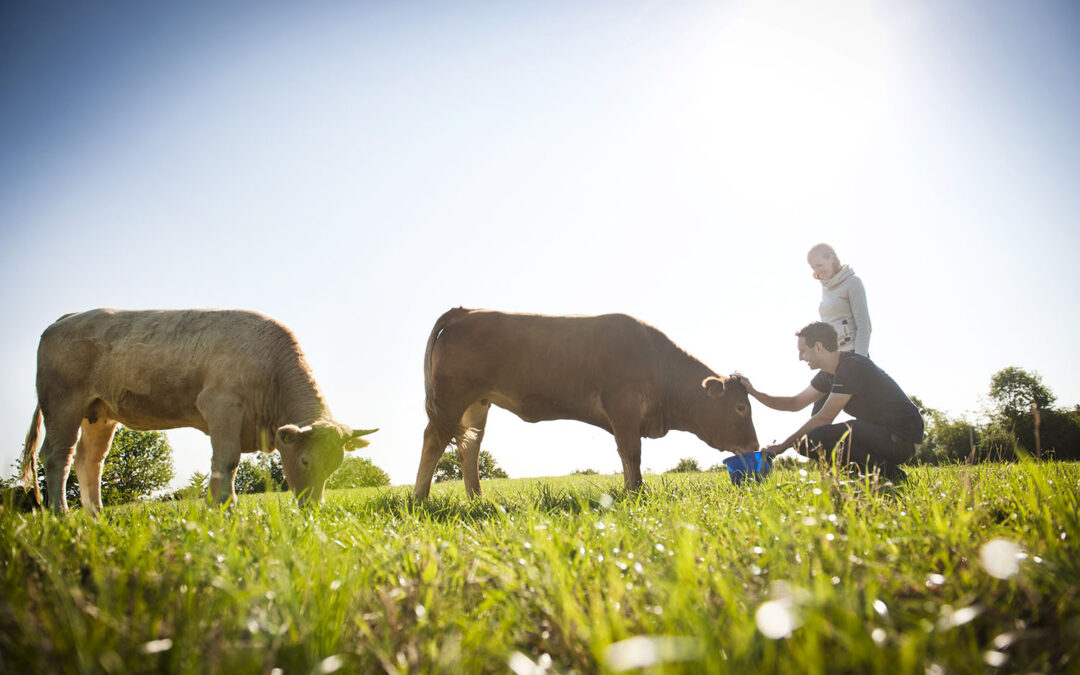
What is Sustainable Winemaking?
Sustainable wines aim to have a winemaking process that protects the environment, supports social responsibility, maintains economic feasibility, and produces high-quality wines. As grapes are grown, harvested, and made into wine, a multitude of environmental factors are prioritized.
This includes everything from maintaining biodiversity on vineyards to ensure soil health, to implementing recycling measures that conserve water as grapes are growing, to utilizing renewable energy technology like solar, as wine is being produced.
With the ever-changing climate landscape and green movement, sustainability is becoming increasingly important in viticulture. Wine estates which have adopted sustainable winegrowing practices endeavour to constantly optimize their overall operations, work in the vineyard, cellar management and marketing/sales as part of a holistic approach to sustainability.
Production Process
Every stage in the production process, from pruning to dispatch, has to be regularly scrutinized and improved. In the vineyard, this means using crop protection products and fertilizers only when necessary and in consideration of all environmental protection criteria. The motto here is “as much as necessary, as little as possible”.
Bottling
In bottled wine production, thin-walled bottles and screwcaps could be employed as these are cheaper to produce and lighter to transport.
Transport
Care is taken to commission freight companies that work sustainably rather than transporting the wines in their own trucks. Attempts are made in all areas to use resources as efficiently as possible, for example by converting to renewable power. This has an influence not only on ecological but also on economical aspects, as costs can be reduced.
Social Aspects
Social aspects also come into play, for example, through fair wages for employees and training programmes, or through the preservation of the cultural landscape.
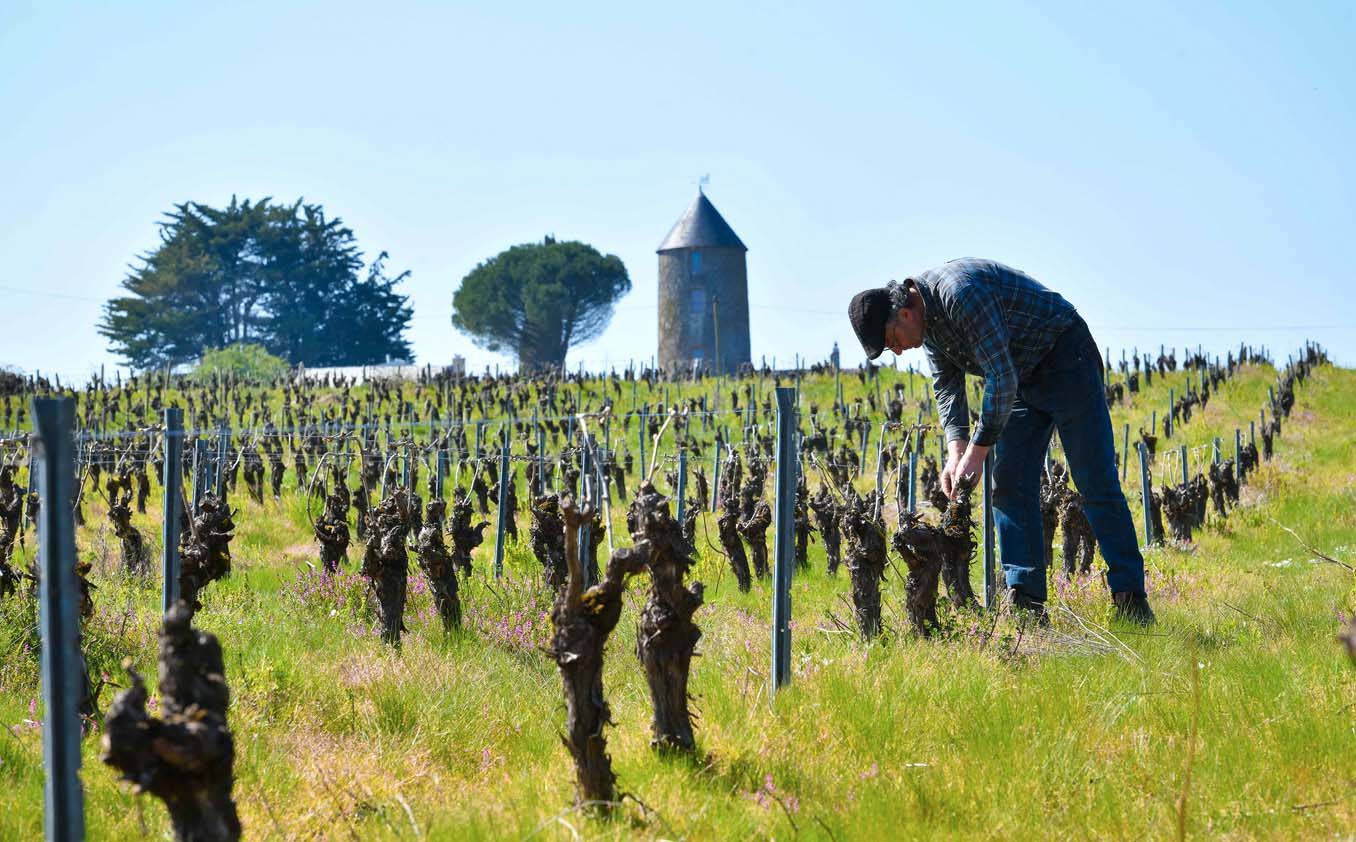
Sustainability vs Organic Winemaking
Sustainability encompasses a wide variety of factors that can sometimes be mistaken for organic/biodynamic farming. In retrospect, sustainability refers to when a winery engages in eco-friendly practices such as limiting/eliminating chemical waste and the use of pesticides, replanting crops or trees to replace those harvested for production, carbon footprint reduction, energy efficiency initiatives, recycled packaging, biodiversity programs, wildlife conservation and other green initiatives. The basic concept of sustainability is to do business while leaving as little negative impact on the earth as possible.
Whereas organic and biodynamic farming each has its own set of principles that could fall under the ‘sustainable’ umbrella, but delve deeper into specific criteria.
Winemakers vary their process when it comes to creating sustainable wine:
-
Growing and harvesting: Grapes are grown in a vineyard that prioritizes water and energy conservation, ecosystem and wildlife preservation, and soil, air and water quality. The process may be organic, but it may not be.
-
Adding ingredients and fermenting: Sustainable winemaking places a focus on environmentally friendly and socially responsible processes balanced with cost and economic sense. Sometimes the ingredients are organic, but they don’t have to be.
-
Storing and transporting: Facilities and transportation in this winemaking process place a focus on energy efficiency and social responsibility.
Not all vineyards that produce sustainable wines have the same practices. You could have two different sustainable wines sitting side-by-side and find out that their farming, winemaking, storing and transporting processes were completely different. One may be organic, and another may not be.
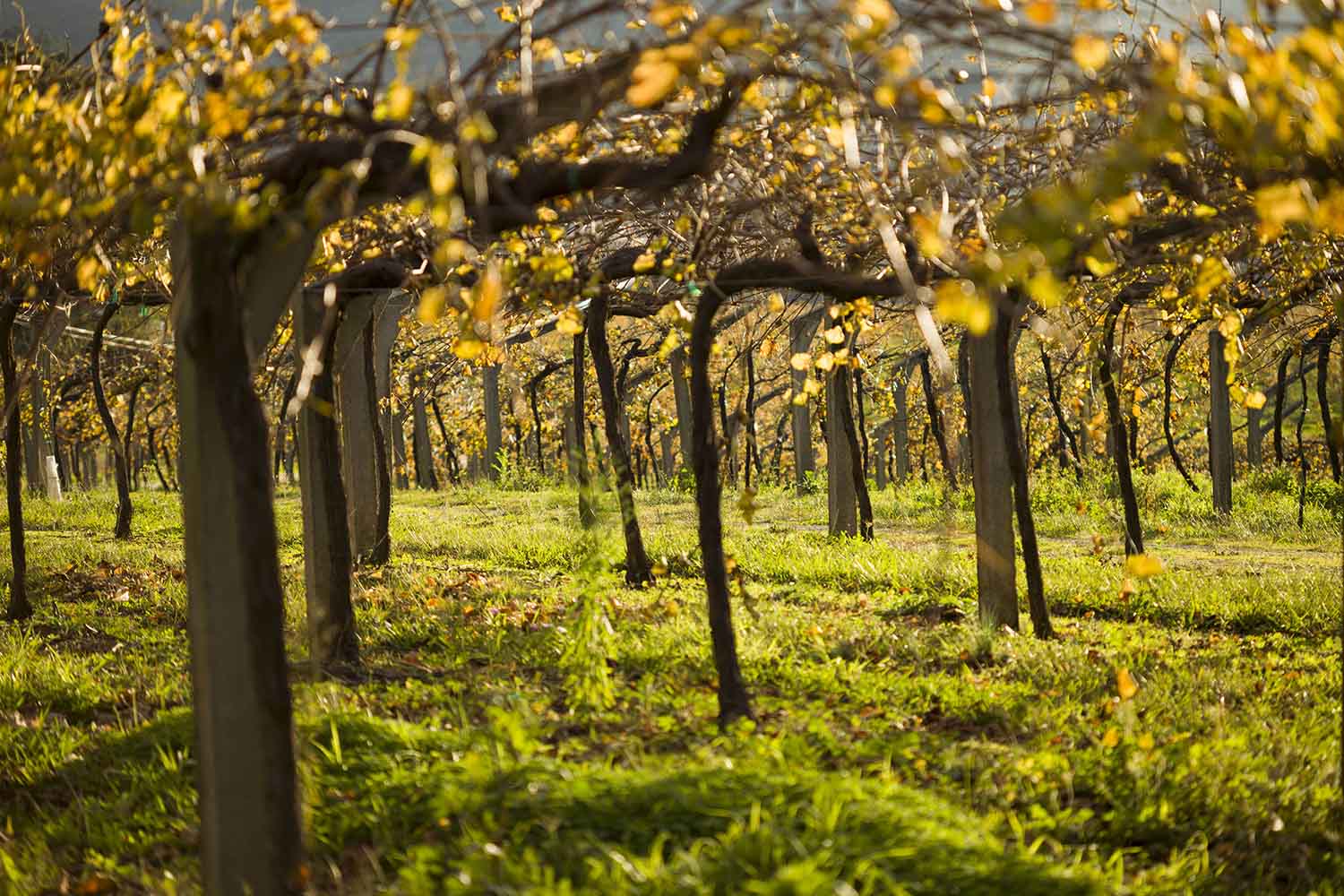
Sustainable Practices
Some examples of sustainable practices in the winery include:
– Reducing carbon emissions through decreasing reliance on machinery (hand-harvesting, etc)
– Introducing cover crops, drip irrigation and process ponds to conserve water
– Practise composting, recycling and reusing raw materials to minimize waste
– Protecting air and water quality
– Preserving local ecosystems and wildlife habitats
– Practising environmentally preferred purchasing
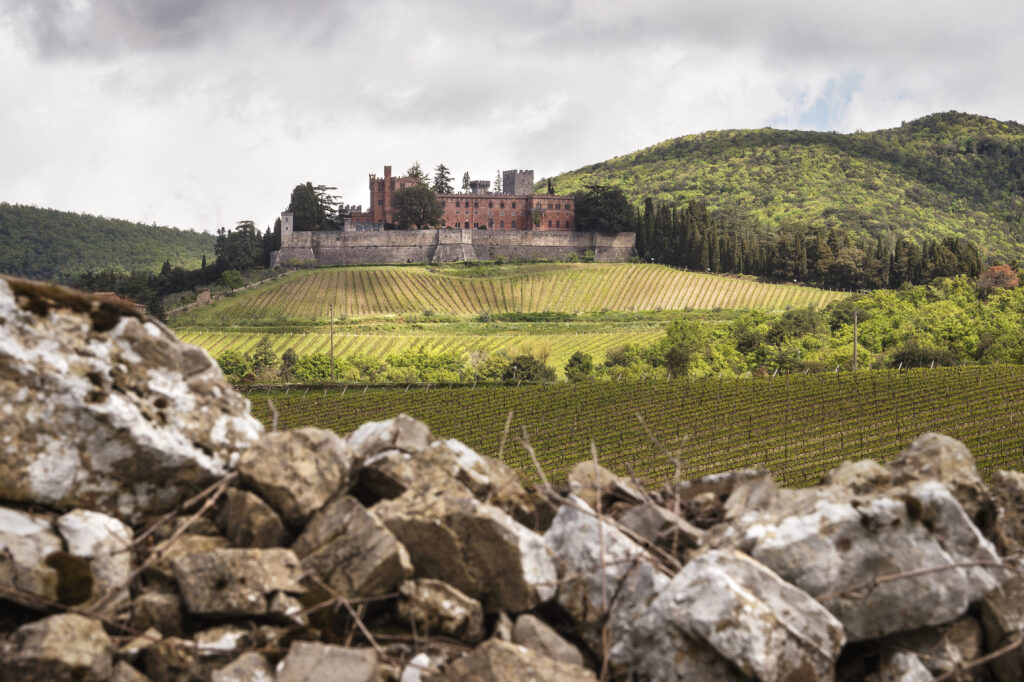
Sustainability in Practice – Barone Ricasoli
For many years, Ricasoli has been practising increasingly nature-friendly agriculture. They kept away from chemical weeding, pesticides and opted for systems of fertilization and parasite control that are even stricter than the principles of organic farming.
The 1,200 hectares of the property are a hymn to biodiversity: 70% of this large area is covered with woods and Mediterranean scrub characterized by an extraordinary variety of animal and plant species. While in the woods lives a rich fauna that thrives thanks to the healthiness of the environment, the sustainable practices in the vineyard favour the presence and work of pollinating insects and that of microorganisms and invertebrates, which enrich the soils.
The winery also takes a step further by focusing on social sustainability, where they are the first employer in its county, Gaiole in Chianti. The resources and skills employed in the company are almost exclusively local, thus, the communities living in either the countryside or some isolated nearby places are kept alive. The stories of entire families are intertwined with those of the company and, time and again, crafts and professions have been handed down, like a passing of the baton, from parents to children
The love for the territory where the Ricasoli family has its roots, furthermore reflects in the scrupulous care of the man-made landscape of Brolio and its peculiarities, in full respect of the local ancient peasant culture and of the Chianti tradition, such as the gravel roads, the cypress-lined alleys and the dry stone walls – listed in the UNESCO Intangible Cultural Heritage of Humanity.

Sustainability in Practice – Casas del Bosque
Responsible use of water
Water is used responsibly in the winery with modern and careful implementation of the drip irrigation system – supplying water to the vineyards from underground wells. Different irrigation management is established depending on the variety, soil type and microclimate of each plot. The winery also has a natural reservoir (Los Olivos), and an array of covered reservoirs to avoid evaporation while keeping their water clean. Water efficiency and use are tracked monthly.
Conversation and Biodiversity
In their very own farm, the winery rears livestock which produces compost that eventually goes back as organic matter and nutrients for the vineyard’s soils.
A vibrant ecosystem was also created where native plants share their space with a magnitude of organisms in the vineyards and, in that habitat. In the Los Olivos reservoir, apart from native flora such as lavender, roses and guaras, it is also common sight to find wild geese and ducks that cohabit with other typical bird species, such as queltehues, owls and kestrels.
Waste Management
The winery takes an important view towards an effective waste management protocol which dictates the correct handling of all wastes generated in the fields and in the winery: they classify and separate waste material, using methods of recycling and composting as well.
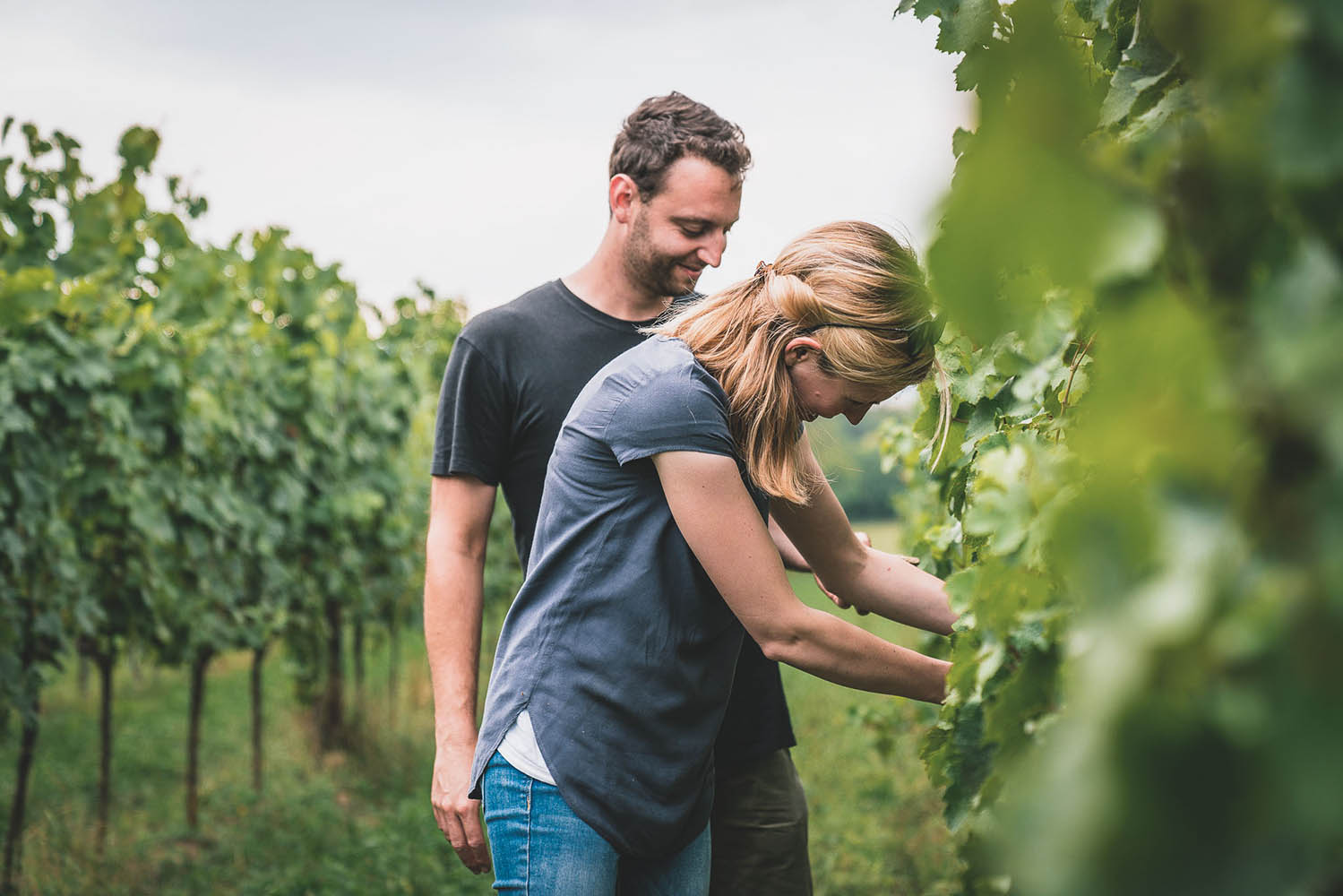
Sustainability in Practice – Geyerhof
Taking a step into Geyerhof’s vineyards is akin to walking into a true nature reserve. This is one of the few (if not the only) vineyard in the world with that much flora, fauna and biodiversity.
Crops
Not far from the vineyards, surrounded by old hedgerows and freestanding nut and fruit trees, are the farm’s crops scattered over 27 hectares. Wheat, sunflower, pumpkin and lucerne are some of the crops which are farmed on an alternating rotation. A multitude of weed plants, insects and birds also benefit from this extensive organic farming approach.
Cattle
In total, 6 Murboden and Angus cattle spend their days from spring to winter roaming freely outside on a generous pasture. As stewards of the landscape, they contribute their part to the diversity of the land, the fauna and the flora, while reminding everyone of an almost forgotten form of land use in the region.
Bees
Inherently sustainable beekeeping, as well as the diverse landscape around Oberfucha, provide an ideal basis for the development of healthy bee colonies. With their incredible pollination capacity, the bees themselves contribute greatly to the conservation of this biodiversity.
Hedgerows and field margins
The crops and vineyards are surrounded by over 40,000m2 of hedgerows, shrubs, trees, extensive meadows and bodies of water. These elements unquestionably constitute the nature conservation backbone of their landscape, which needs to be protected more than ever. The smaller structures are home to numerous animal and plant species – including useful insects – which serve as protection against soil erosion, contribute to the reduction of greenhouse gases, serve as a pantry for fruit and wood, minimise evaporation, stabilise soil humidity, function as biotope networks and create a biological equilibrium.
Geyerhof was awarded the Austrian sustainability award in 2019. This award honours outstanding initiatives which highly contribute to the achievement of the 17 SDG (Sustainable Development Goals) of the United Nations.






